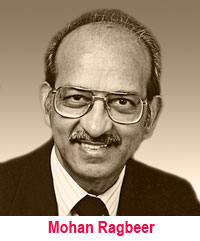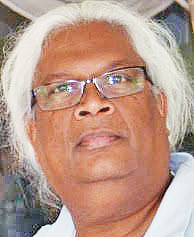Opinions
Ontario Elections

That decision had already coincided with a major surprise, the election of Doug Ford, politician and businessman from Etobicoke, as the new leader of the Progressive Conservative Party, following the forced withdrawal of e Minister in Harper’s government.
Patrick Brown due to complaints, by two females, of sexual molestation, the current epidemic that is felling males everywhere in North America. Doug Ford narrowly defeated Christine Elliott, long-time PC leader, widow of the late Jim Flaherty, Conservative Party of Canada politician, and Financ Polls suggest that Ford will defeat Wynne, who has a messy record, particularly in the handling of Hydro and the rise of energy rates. The current seat spread is Liberals 55, Conservatives, 28, New Democrats 21, Green Party 0. The new expanded legislature of 124 seats require 63 for a win. Thus the task before the politicos and the voters is plain to see.
As the incumbent government, the Liberals have held sway for nearly 15 years, ten of those under Dalton McGuinty before it fell to the current leader, Kathleen Wynne, who took over when McGuinty resigned the leadership in 2013, in the wake of the gas plants scandal, in which she is said to have been involved, where, in a convoluted series of mis-steps, the Government paid a Calgary contractor, Trans Canada Energy, some $950M for cancelling two gas plants; the amount was authorised by McGuinty and Cabinet, but reported as $230M. For various reasons, the OPP investigated and laid criminal charges against two of Mc Guinty’s staff, yet to be sentenced.
Ms. Wynne led the Liberals to a majority in 2014, surviving McGuinty’s enduring scandals and waste of funds, especially those in privatising Energy; the fall-out from George Smitherman’s first Ministry of Health administration, excesses and preferment and shady hiring deals, especially with electronic health records. Strange, how incompetent Governments have been in dealing with computerised systems, the Phoenix federal payroll boondoggle being the most embarrassing for a nation that calls itself “advanced”; it’s in its third year, with no solution in sight.
Premier Wynne unleased her throne speech this week full of the usual promises, the list sounding ominously like the one McGuinty put out in 2003, with goodies for health care and education, but gave us an enduring mess instead. Take “wait times”, or e-health. The promised improvements have turned up the opposite, in almost every general hospital, where sizeable blocks of beds are chronically occupied and choke the flow of cases; they deserve to be better housed in alternative placements e.g. long-term care centres, which are desperately short of capacity, a need clearly underestimated by the heavy Ontario Ministry of Health bureaucracy, their inefficient and badly designed LHINs – a flawed model to begin with – thanks to former Minister Smitherman, another political flop of the last decade, same ilk as Wynne, now threatening to re-enter politics as a Toronto councillor.
In this round, Wynne is promising more support for health (home care, dental care, medications, addictions, mental health and child care) and improved pay for early childhood workers, increased minimum wage, while at the same time Andrea Horvath of the NDP promises to pay for drugs for 4.5 million Ontarians, provide for dental care and turn student loans into grants. Little is published re Doug Ford’s ideas other than vague statements re smaller government; review of sex education, and the abortion law; opposition to a carbon tax; reducing hydro costs, which Wynne had caused to increase; and health care improvements, including the perennial wait times.
Wait times are a sore point in Ontario. In the Hamilton General Hospital, you can expect an emergency room visit to take up to 20 hours, St Joseph’s 12, and the Children’s Hospital 4; not that it’s more efficient, it’s just that there are no, or few, long-term inpatients blocking beds, as there are in the adult hospitals. Compare this with Hamilton, Texas, an acute care hospital, where 0% of patients leave without being seen; most are seen by a doctor in 21minutes, home in 2 hours, admitted in under 3 hours and in hospital room ½ later). Ontario guidelines for ER waiting is 8 hours!
New worlds form with changing names
 Romeo Kaseram
Romeo Kaseram
The newspaper came early to our house in those days when the “milk-man” and the “papers-man” met at our front gate, there to exchange early morning greetings, this occurring when I was growing up back home in the time before the news was electronic and wireless, and milk not mass produced and packaged in plastic.
Those early days were also iterations in smaller spaces of what was then the evolution of surnames from professions, so our milkman became “Milkman”, and the newspaper man “Papersman”. The man with the donkey and a cart was eternally hailed as “Cartman”;
the religious man was greeted as “Punditji”, with a bow and clasped hands. Women were similarly named: the maker of the delectable currant rolls, meat, and vegetarian pies, and loaves of bread with its braided plaits, inevitably was monikered, “Bread-lady”; our seamstress, “Dress-lady”, and the professional who left the village each morning for the small town to work among the sick in the tiny, colonial hospital, she was affectionately known for the rest of her life as “Nurse”, and for those who were closer and favoured with her medical advice, “Nursie”.
Later in life I would learn that some surnames are rooted in this tradition; that the name “Engineer” was derived from the noble profession of working on the rails; similar occupational surname derivations occurred with names as “Woodsman”, “Baker”, “Butcher”, and even “Skinner”. It meant the space where I grew up was constantly in flux with many imbrications, conflations, and even mutations; what was traditional, such as our inherited surnames with its rich linkages and histories were becoming delinked; detached from its historical geographies, what was replacing this was a remapping, the new contours shaped by local temporalities inside micro-geographies and spatialities.
For “Papersman” and “Milkman”, there was always that moment of friendly exchange whenever the front wheels of their bicycles met at our front gate, each man greeting the other out of the framework of the calling in life that had wheeled their paths together.
“Aye! Papers! How are things in the capital city this morning?” That both men were close friends was indicated in not only the professional greeting, but in affection apparent in the shortening of the new names. So “Papersman” became the diminutive “Papers”. Likewise, in a return of affection, “Milkman” was fondly called, “Milks”.
“It looking as if the government doing the same thing they good at,” Papers responded.
It seemed that this good gentleman delivered newspapers each morning in some way connected him with the making of its news in the bigger world beyond the village, putting his reach in a time of no telephones and televisions past not only the small town where “Nurse” administered succour to the ailing, but cast it even farther afield, beyond the fields of canes, to centre of the capital city itself, where big decisions were made about the country by the government and its politicians.
This made “Papersman” not only a respectable person, but a knowledgeable one as well, someone who could give an opinion that was weighty and learned.
“Papersman” seemed to enjoy this eminence immensely, so much that he spent many hours close reading, both the morning and the evening editions of the newspaper, so he remained informed and capable of responding to the role expected of him as not only a deliverer of the news, but as an agent of its becoming.
Whenever he replied to a question about the goings-on in the far-off offices where these headlines were written, he made it as if he knew each politician personally, and the outcomes in the many columns on the front page were what he had been expecting all along.
There he sat on his merchant’s bicycle, with its front tray stacked with the folded morning edition, this covered from inclement weather with a flapping piece of plastic. He kept his balance of the heavy bicycle and its weight of paper with one leg on the ground, the other on a pedal. For him, to deliver an opinion on the news itself was nobler than pushing the rolled newspaper into its waiting tube on top of our front gate. To do so, he tossed back his long hair so his chin jutted forward, in the manner of the photographs on the front page showing a city politician in full stride, with an illustrative forefinger, and a chin similarly eloquent.
Said Papers”: “I was telling everybody all week. There was no way the Opposition would vote on this piece of legislation. I could tell right away the government would not be able to pass this piece of law. They don’t have enough credibility to do it, and the Opposition leader is a man with a mission!”
This was all lost on his good friend Milks. For him, a newspaper was a practical purchase – it was used mainly to wrap bottles of milk; and for the comics section, where “Milkman” read “Tarzan” and “Phantom”, religiously cutting out each daily strip and pasting it chronologically into used copy books to make connected sequences from these awful, coloniser narratives.
